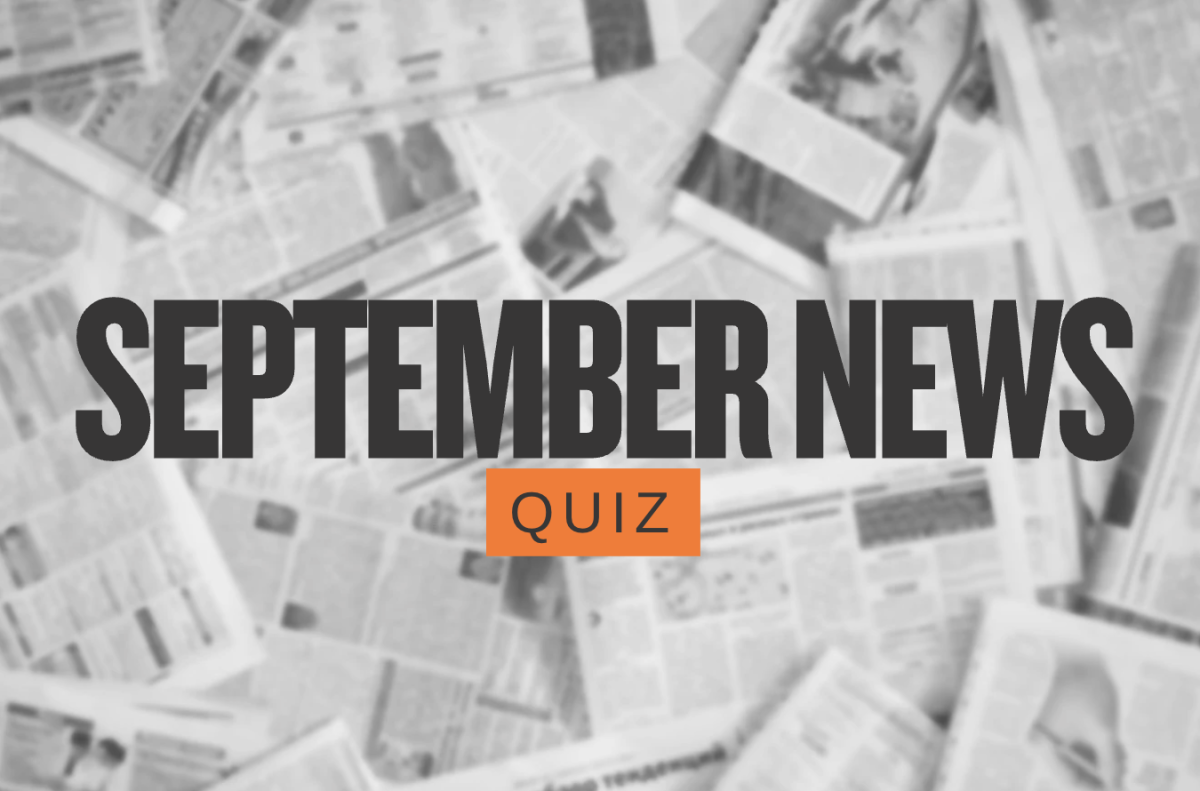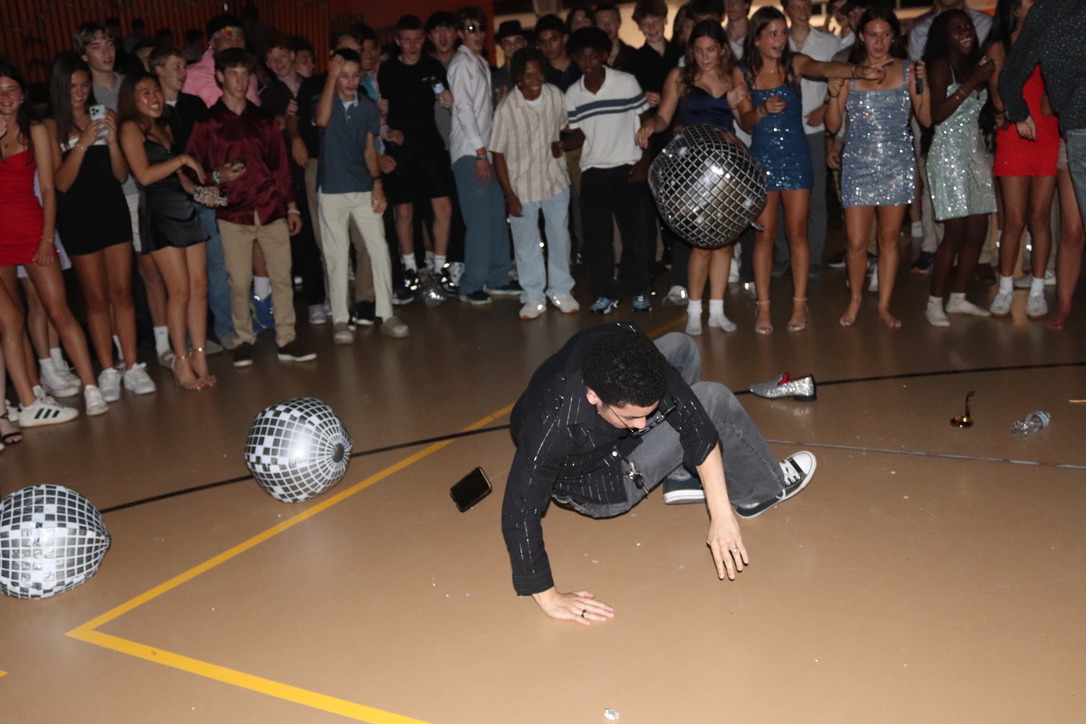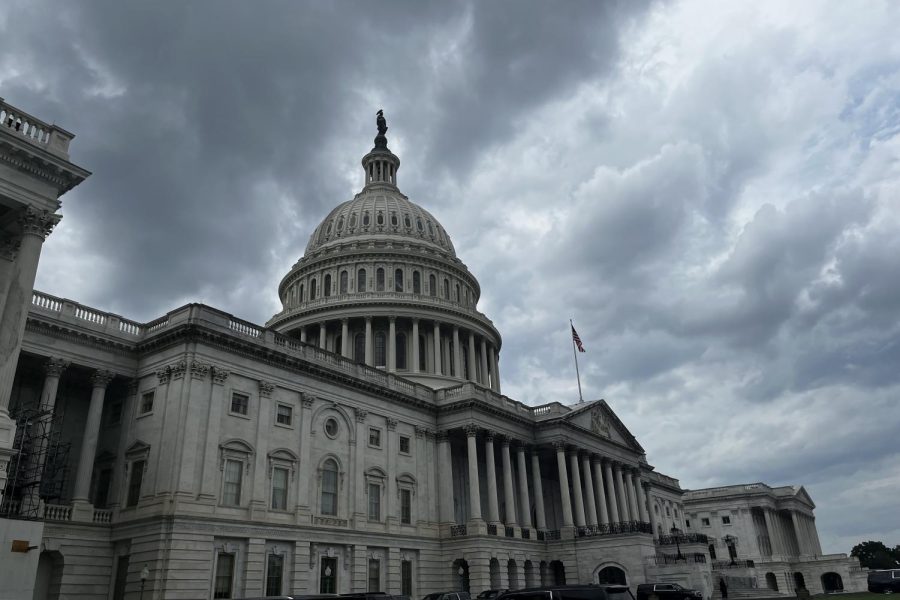Opinion: Lawmakers need to go back to kindergarten
Credit: Delia Caulfield
WSPN’s Delia Caulfield discusses and challenges our nation’s political system that has been present for centuries.
September 23, 2022
Majority rules? Maybe in kindergarten, but not always in American politics. All kindergarten students have been taught crucial life skills needed to integrate into society, yet our political leaders need a reminder.
As our five year old selves enter the double doors on our first day of kindergarten, we are nothing but a pair of pigtails and a big smile. When the last day rolls around, we aren’t fully proficient in spelling, reading or writing, yet we are well-versed in our nation’s most prized subject: democracy. My class did it all, including hand raising, voting with our feet and my all-time favorite: Shouting “majority rules!” at the top of our lungs. Schools mold and shape us into being good, democratic citizens, almost as if they anticipate civil unrest if such values are not instilled from childhood. It’s all we’ve ever known.
The ideas that are ingrained in our minds from our youth contradict how we vote for our nation’s highest office, forcing us to adapt to a new way of thought and disregarding the ideas we were nurtured with as children.
I have grown up in a household with parents who aren’t afraid of expressing their political beliefs. Although both hold similar beliefs to myself, our convictions don’t fully align. A prime example of this is in regards to our nation’s electoral system, while one of my parents is pro Electoral College, the other is against. Go figure, our nation’s voting system was a frequent topic—and sometimes lengthy debate—at the dinner table.
Centuries have passed since the Electoral College was first developed, and the influx of migration to large, coastal cities contributes to the inflated influence of less populated states in the Presidential election. We can’t expect our nation’s demographics to stay identical centuries later when many major developments are occurring in the hotspots of large cities. So why hasn’t the Electoral College changed to reflect how our nation has evolved?
For example, Wyoming—our most Republican state—has a population of 535,000 and three electoral votes. This translates to one district accounting for a mere 194,000 people. A few states to the west lays our third bluest and most populous state of the United States, California; its 55 electoral votes roughly translate to one representative per 715,000 people. In order for both of these states to represent their populations fairly, California would need to have 203 representatives to Wyoming’s three. This is basic math, so why do we continue to make excuses for states (particularly red ones) to hold an inflated amount of power? It isn’t fair.
These flaws aren’t just theoretical; it happened in two twenty-first century elections. In the year 2000, Republican George W. Bush and Democrat Al Gore faced off in what would be one of the most controversial elections in United States history, with a 5-4 Supreme Court decision and five electoral vote margin ultimately declaring Bush the winner. Despite Bush’s victory, he lost the popular vote by 500,000, therefore marking the first time in modern history when a president elect won the Electoral College, yet lost the popular vote.
Four presidential elections later, Hillary Clinton received almost three million more votes than Donald Trump in the 2016 election. However, Trump was elected President of the United States despite losing the popular vote by this large margin. This shouldn’t happen in the first place; there is simply no way to rationalize these outcomes.
So the question is: What are we getting wrong?
The United States is described as a democratic republic because our elected representatives exercise political power in the House of Representatives and Senate. One of the main arguments in favor of our electoral system is the fact that we are technically governed by state elected senators and representatives and not the people as a whole. While the Electoral College does abide by these principles, it is far from being indicative of our nation’s composition.
The Electoral College has been a controversial and heavily debated topic since it was first drafted centuries ago. The framers of our Constitution had many disputes when deciding how the nation would elect its Commander in Chief. The idea to create the Electoral College was merely a compromise between holding a popular vote and leaving the decision up to Congress. It was never anyone’s first choice; this remains true to this day.
Our founding fathers created an imperfect voting system, excluding women, black people, indigenous people and even white men lacking property. As years progressed and inclusivity increased, we moved closer to one citizen, one vote. So, shouldn’t we continue to apply that principle every four years? Must we relinquish the basic principles of democracy to keep the Electoral College?
There’s a reason 55% of the country wishes to discontinue the Electoral College and in turn, opt for the popular vote system. There’s a reason the majority of those in opposition to the popular vote are right leaning. And yes, there’s a reason our country has sat back and allowed this outdated system to continue.
It’s because bi-partisan politics is nearly extinct. A country in this state prioritizes personal political agendas over improving the nation as a whole. There is always an ulterior motive for those in power—proving that most of the time, selfless deeds are non-existent in the world of politics. The bare minimums of diplomacy and respect for others are overshadowed by an overwhelming urge for power, influence and money. No matter your party or other political affiliations, there is work to be done on both sides. It shouldn’t be implausible to ask for unbiased, simple democracy.
It’s as easy as one, two, three: The government needs to return back to basics. So lawmakers, I invite you to grab a picture book, get out your lunch box and return to the simplicity of democracy: one where diplomacy reigns, majority rules and politicians stand untouched by bias. Let’s go back to kindergarten.

![During the WHS club fair, senior Molly Bergeron is watching a student sign up for her club, Eliza J. Norton Foundation. In this club, students meet every week and come up with ideas to spread the message. "[This club] really touches a lot of people in the town," Bergeron said.](https://waylandstudentpress.com/wp-content/uploads/2025/10/IMG_1335-1200x800.jpg)


























